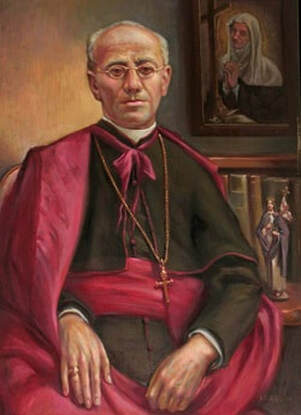"For as long as I live, I will offer my service for others, so that many people recognise God in their lives, and I can truly be a disciple of Jesus Christ. He who has lived and died for me, I keep living on His footsteps"
Mons. Isidor Formosa
|
Born in Valletta on the 15 Novembrer 1851 of a noble family which lived strong christian principles. His parents were Count Saviour Formosa and Josephine Farrugia Lebrun, from whom the young Isidor received examples of the highest virtues, especially industriousness and putting himself at the service of others. When he showed an inclination to the ecclesiastical career, he found in his home encouragement and consolation. Having passed with excellent results the course of studies and after being consecrated a priest, he showed himself to be full of zeal for the spiritual good of the People of God, at the same time showing from the first special attention to the poor. In fact the first ground which he lovingly toiled was the Institute of the Good Shepherd, instituted for the spiritual education of poor children in Valletta. Don Isidor embraced this work with holy enthusiasm and a paternal solicitude. These were children lacking the first rudiments of manners, and the sight of their poverty compelled him to unite holy teachings had with material bread and also clothes which he procured, especially on the occasion of their First Holy Communion.
|
